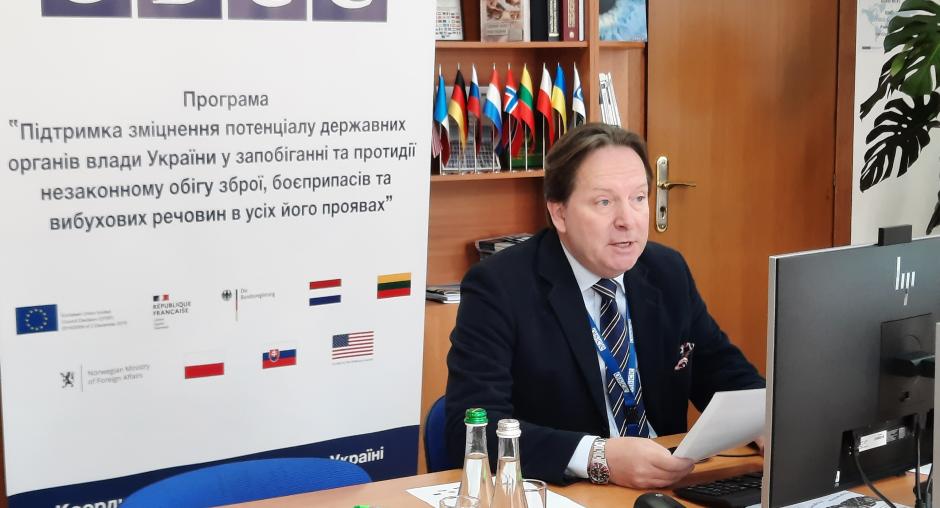OSCE supports strategic and co-operative approach in combatting illicit trafficking of weapons, ammunition and explosives in Ukraine

Over 80 representatives from Ukraine, the donor community and international partner organizations met on 14 April 2021 to discuss co-operation and programmatic efforts in developing and implementing strategic approaches and practical measures in combating illicit trafficking of weapons, ammunition and explosives (WAE).
The discussion was part of a Governance board meeting of the OSCE Comprehensive Programme on “Strengthening capacities of Ukrainian authorities in preventing and combating illicit trafficking in weapons, ammunition and explosives in all its aspects”. The Programme provides a regular platform for reviewing progress and activity plans, exchanging information, as well as facilitating resource mobilization and coordination among national and international stakeholders.
“Joint action on small arms and light weapons (SALW) control in Ukraine requires a strategic approach supported by solid foundations,” said Serhii Honcharov, Ukrainian Deputy Minister of Internal Affairs, during his opening address. “These should be based on an adequate legal framework, in particular the law on weapons, inter-agency co-operation through SALW co-ordination mechanisms, as well as a concrete roadmap on SALW control.”
Henrik Villadsen, the OSCE Project Co-coordinator in Ukraine, expressed the OSCE’s willingness to support Ukraine’s relevant efforts in this field. “We stand ready to further support the Government of Ukraine and its ministries in taking necessary policy, regulatory and practical measures to address the issue of illicit trafficking in WAE head-on and comprehensively.”
Launched in 2019, the OSCE Comprehensive Programme is being implemented jointly by the OSCE Secretariat and the OSCE Project Co-ordinator in Ukraine in partnership with Ukraine’s Ministry of Internal Affairs, the National Police of Ukraine, the State Border Guard Service and the State Customs Service of Ukraine. It is financed and supported by in-kind contributions by the European Union, France, Germany, Lithuania, the Netherlands, Norway, Poland, Slovakia, and the United States of America.
